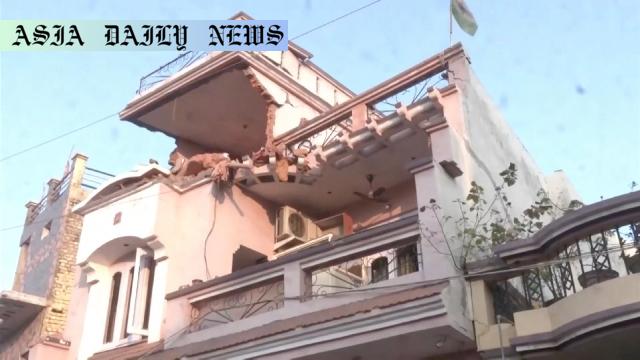Conflict escalates as Pakistan launches missile attacks on military and civilian targets in India, raising international concerns.

Escalation of Tensions Between Pakistan and India
In a significant escalation of tensions, Pakistan has launched retaliatory missile attacks on key Indian military installations. This development marks a critical point in the deteriorating relations between the nuclear-armed neighbors. Pakistan’s military announced that the strikes were in response to an earlier offensive by Indian forces targeting three Pakistani military facilities, including one near Islamabad. The retaliatory move underscores growing concerns over regional stability and the potential for the conflict to spiral into a full-blown war.
Widening Scope of the Conflict
According to Pakistan, its forces targeted multiple Indian military sites, including a missile storage facility. The footage released by the Pakistani military showed missiles being launched from mobile units, indicating precision strikes. The Indian Foreign Ministry confirmed the attacks, stating that military units in Indian-administered Kashmir and other regions in the western and northern areas were hit. Civilian infrastructure, including a medical center and school premises near military bases, also suffered damage, leading to a rise in casualties.
Global Concerns and Calls for Restraint
The international community, including the Group of Seven foreign ministers and the High Representative of the European Union, has voiced serious concerns over the unfolding situation. In a joint statement, global leaders urged both nations to exercise maximum restraint and avoid actions that could lead to an unmanageable escalation. The South Asian region, home to over a billion people, now faces heightened uncertainty as diplomacy struggles to keep pace with the rapidly deteriorating security situation.
Impact on Civilians and Infrastructure
This conflict is not limited to military targets. Reports of civilian casualties and damage to infrastructure have added to the human toll of the escalating tension. India has accused Pakistan of attacking civilian areas, including medical facilities and schools, which is likely to compound the suffering of vulnerable populations in affected regions. Meanwhile, Pakistan maintains that its strikes were a calculated response to Indian provocations and that it does not intend to target civilian areas.
Future Outlook and the Risk of Escalation
The situation remains fluid and deeply concerning. While both nations have signaling mechanisms to avoid accidental escalations, the current climate poses unprecedented risks. As the world watches with bated breath, international diplomacy will play a pivotal role in mediating between India and Pakistan. A measured response from both countries is crucial to ensuring that the conflict does not lead to devastating long-term consequences.
Commentary
The Gravity of Escalating Conflict
The ongoing tension between Pakistan and India is a stark reminder of how fragile peace can be in geopolitically sensitive regions. Both nations possess nuclear capabilities, elevating the stakes of their confrontation to an alarming level. The recent strikes signal a dangerous trajectory, where measured responses seem to be replaced by reactive hostility. It is crucial that both sides reconsider their approaches, as the risks to regional and global stability cannot be ignored.
The Role of International Mediation
The calls from international bodies such as the Group of Seven and the European Union highlight the global importance of the India-Pakistan conflict. External mediation might serve as a conduit for de-escalation, especially as tensions rise with each retaliatory attack. However, the effectiveness of such efforts will heavily depend on the willingness of both nations to engage in constructive dialogue. Trust and mutual respect, sorely lacking at this point, will be essential for progress.
A Humanitarian Aspect That Cannot Be Overlooked
Beyond the military maneuvers and retaliatory rhetoric, it is civilians who suffer the most in conflicts of this nature. The reported attacks on medical centers and schools are particularly disturbing, as they symbolize the breakdown of safety and humanity in these contested zones. These actions have far-reaching implications that extend well beyond the immediate loss of life, inflicting emotional and psychological scars that will take generations to heal.


